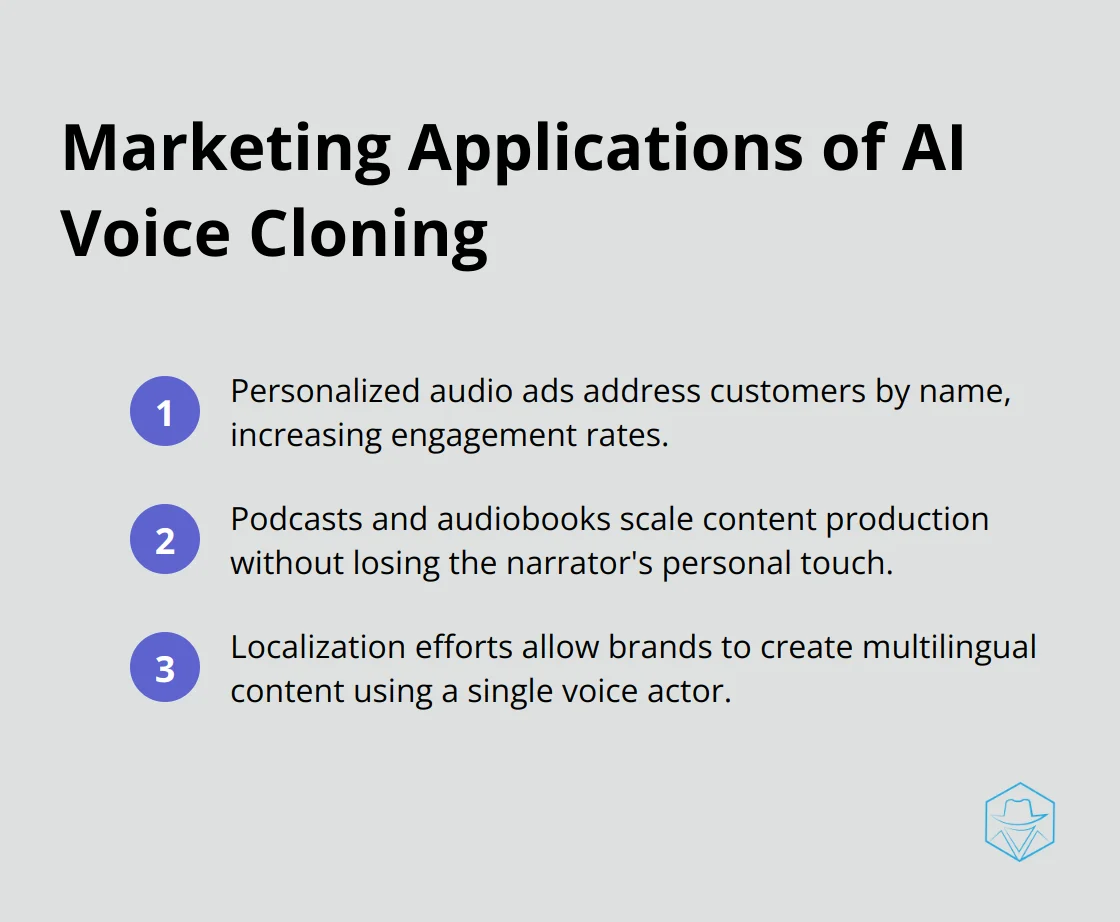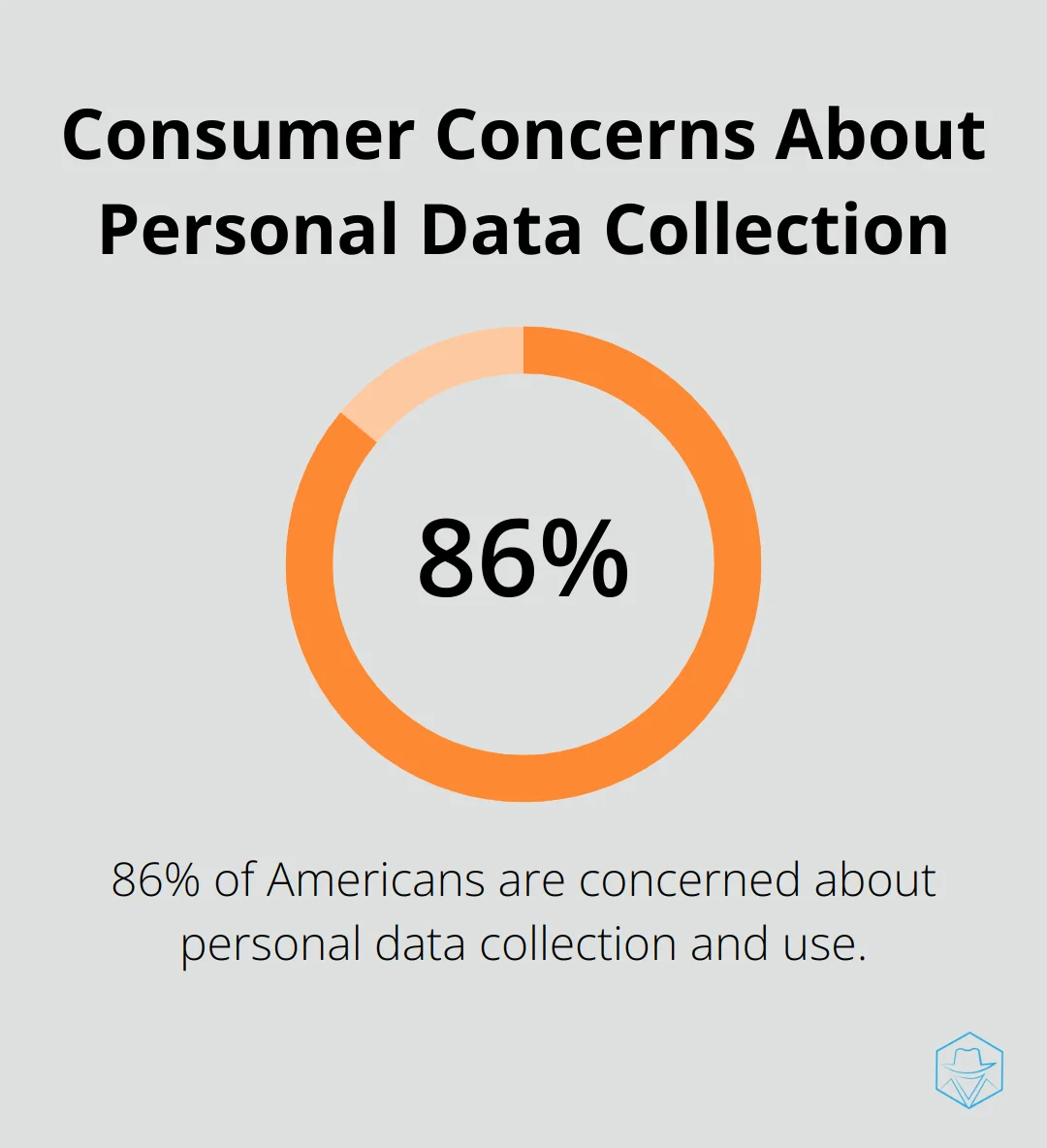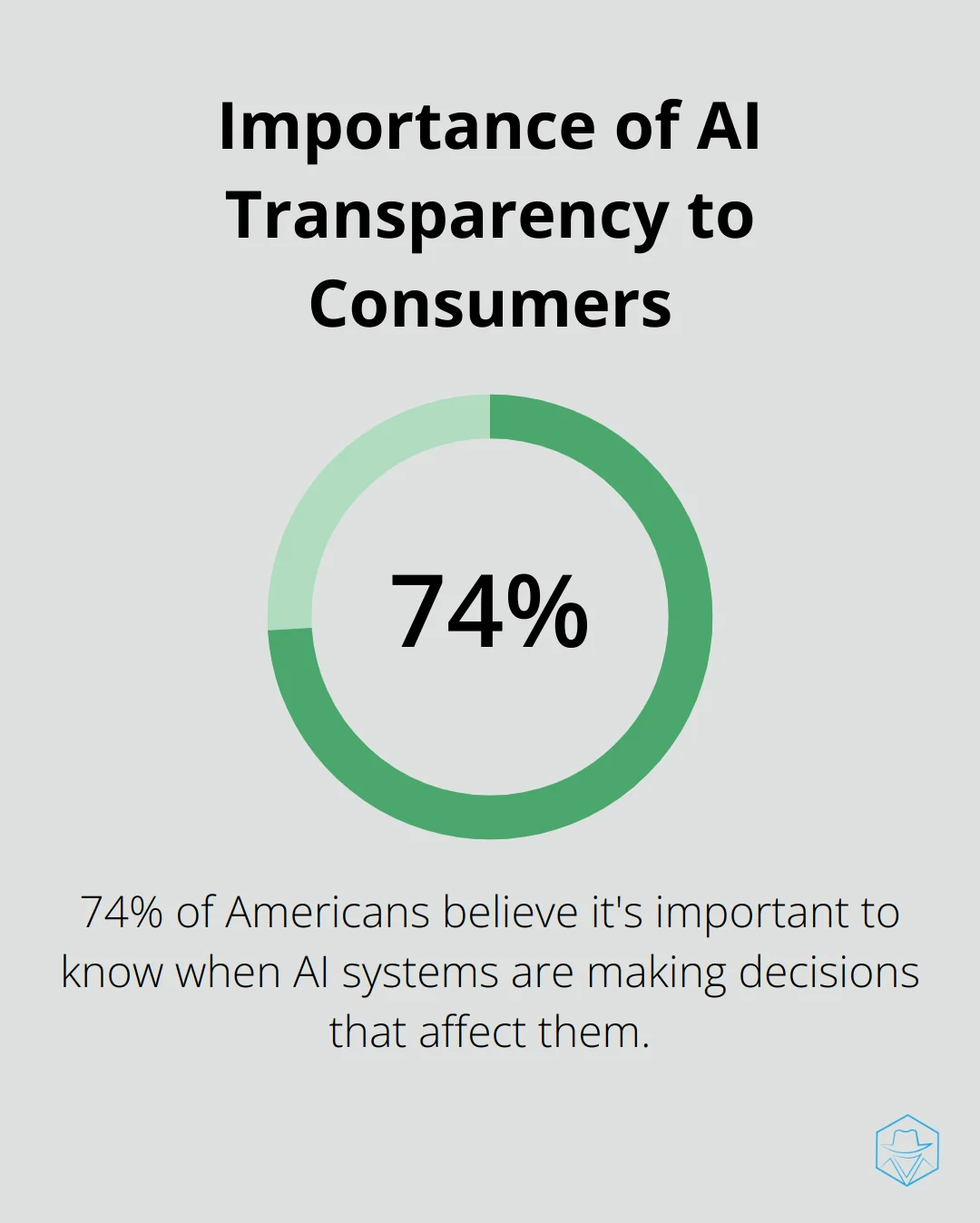Ethical Considerations of AI Voice Cloning in Marketing

AI voice cloning is revolutionizing the marketing landscape, offering unprecedented opportunities for personalized and engaging campaigns. However, this powerful technology also raises significant ethical questions that we must address.
At Drop Cowboy, we believe it’s crucial to explore both the potential and the pitfalls of this emerging tool. In this post, we’ll examine the ethical considerations surrounding AI voice cloning in marketing and discuss how we can harness its benefits responsibly.
What Is AI Voice Cloning in Marketing?
The Essence of AI Voice Cloning
AI voice cloning in marketing transforms how brands communicate with their audience. This technology creates synthetic voices that mimic human speech patterns, intonations, and emotions with remarkable accuracy.
The Science Behind the Sound
The process begins with a voice sample. AI analyzes the sample’s unique characteristics (pitch, tone, rhythm) using deep learning algorithms. It then creates a digital voice model capable of speaking any text with the same vocal qualities as the original speaker. Modern technology can now produce a convincing voice clone from just a few seconds of audio.
Marketing Applications That Make Waves
In the marketing realm, AI voice cloning unlocks a multitude of possibilities:

- Personalized audio ads address customers by name, increasing engagement rates.
- Podcasts and audiobooks scale content production without losing the narrator’s personal touch.
- Localization efforts allow brands to create multilingual content using a single voice actor, maintaining consistency across markets while speaking the local language.
Real-World Success Stories
The ‘Say It With OREO’ campaign exemplifies the power of AI voice cloning. OREO used Bollywood star Farhan Akhtar’s voice to create personalized messages for consumers. Users shared awkward situations on a microsite and received custom audio responses in Akhtar’s voice. This campaign resulted in a significant increase in engagement, microsite traffic, and user-generated content.
Studies have shown that AI-generated celebrity voices in TikTok ads can achieve engagement levels comparable to human voices. This approach leverages star power without the need for extensive recording sessions.
The Future of Voice in Marketing
AI voice cloning isn’t just a trend – it’s a fundamental shift in audience connection. As we explore its potential, we must also confront the ethical implications of this powerful tool. The next section will examine these critical considerations and how they shape the responsible use of AI voice cloning in marketing.
The Dark Side of AI Voice Cloning in Marketing
The Impersonation Threat
AI voice cloning in marketing is a powerful tool, but it comes with significant ethical challenges. The technology opens the door to sophisticated fraud. In 2019, criminals used AI to mimic a CEO’s voice and successfully scammed a UK-based energy firm out of $243,000. This incident highlights the potential for voice cloning to be weaponized for financial fraud and social engineering attacks.
To combat this, companies should implement strict authentication protocols for voice-based transactions. Multi-factor authentication that goes beyond voice recognition is essential. Companies should also educate their employees about the risks of voice cloning and how to verify the identity of callers, especially for high-stakes communications.
Consent and Privacy Issues
The ethical use of AI voice cloning hinges on obtaining proper consent. A study by the Pew Research Center found that 86% of Americans express concern about the collection and use of their personal data. Voice data is particularly sensitive, as it can create highly convincing impersonations.

Marketers must be transparent about how they collect, use, and store voice data. Clear opt-in processes for voice cloning and the ability for consumers to revoke consent at any time are necessary steps. Additionally, companies should establish robust data protection measures to prevent unauthorized access to voice samples.
Eroding Trust in Digital Communications
As AI-generated voices become more prevalent and convincing, there’s a risk of eroding public trust in digital communications. A 2022 survey by Deloitte found that 66% of consumers worry about the use of AI to manipulate or fabricate audio content.
To maintain trust, marketers should clearly disclose when AI-generated voices are used in campaigns. This could involve audible disclaimers at the beginning of messages or visual indicators for video content. Being upfront about the use of AI helps brands build transparency and maintain credibility with their audience.
Navigating the Ethical Landscape
As the technology evolves, it’s important for marketers to stay informed about best practices and regulations surrounding AI voice technology. Companies like Drop Cowboy (which offers Mimic AI™ technology) are developing guidelines for the ethical use of voice cloning. These efforts aim to harness the benefits of AI voice cloning while mitigating its risks.
The ethical considerations of AI voice cloning in marketing are complex and multifaceted. As we explore these challenges, it becomes clear that responsible implementation requires a delicate balance between innovation and ethical safeguards. In the next section, we’ll examine how the industry can strike this balance and develop standards for the responsible use of AI voice technology in marketing.
How Can We Use AI Voice Cloning Ethically?
Setting Industry Standards
The marketing industry must establish clear guidelines for the use of AI voice cloning. The Interactive Advertising Bureau (IAB) has already begun work on this front, developing a framework for the ethical use of AI in advertising. We recommend that marketers actively participate in these discussions and adopt emerging best practices.
One key standard should be the implementation of robust consent mechanisms. Voice actors should have the right to approve or deny the use of their cloned voice for specific campaigns or purposes. This approach respects individual rights while allowing for innovative marketing applications.
Transparency is Key
Consumers have a right to know when they’re interacting with AI-generated content. A study by the Pew Research Center found that 74% of Americans believe it’s important to know if an AI system is making decisions that affect them. In the context of voice cloning, this translates to clear disclosure.

We suggest the implementation of a “digital watermark” for AI-generated voices. This could be a subtle audio cue at the beginning of a message or a visual indicator for video content. Such transparency builds trust and allows consumers to make informed decisions about their engagement with AI-generated content.
Navigating the Legal Landscape
The legal framework surrounding AI voice cloning continues to evolve. In the United States, the right of publicity laws in states like California, New York, and Tennessee provide some protection against unauthorized use of a person’s voice for commercial purposes. However, these laws vary by jurisdiction and may not fully address the nuances of AI-generated content.
Marketers should stay informed about emerging regulations and err on the side of caution. This means obtaining explicit permission for voice cloning, especially when using celebrity voices or those of public figures. It’s also wise to consult legal experts when developing campaigns that use AI voice technology to ensure compliance with current laws and anticipate future regulatory changes.
Ethical AI Development
As we push the boundaries of what’s possible with AI voice cloning, we must prioritize ethical considerations in the development process. This means designing AI systems with built-in safeguards against misuse.
For instance, voice cloning software could incorporate features that prevent the creation of content that incites violence or spreads misinformation. Some companies include safeguards to prevent unauthorized use and ensure responsible voice cloning.
Educating Marketers and Consumers
Education is a powerful tool in promoting ethical use of AI voice cloning. Marketers need to understand not just the capabilities of the technology, but also its potential impacts on society and individual privacy.
We recommend that companies invest in training programs for their marketing teams, covering both the technical aspects of AI voice cloning and the ethical considerations involved. This knowledge empowers marketers to make responsible decisions when implementing voice cloning in their campaigns.
Similarly, consumer education initiatives can help build public understanding and trust. Proactive explanation of how AI voice technology works (and how it’s being used) can foster a more informed and receptive audience.
Final Thoughts
AI voice cloning in marketing offers exciting opportunities and significant challenges. We must approach this powerful tool with caution and responsibility to prevent fraud, privacy violations, and erosion of trust in digital communications. The future of AI voice technology in marketing requires a commitment to ethical practices and a balance between innovation and ethical considerations.
Drop Cowboy provides cutting-edge communication solutions that respect ethical boundaries. Our Mimic AI™ technology allows businesses to create personalized voice messages while adhering to strict guidelines for consent and transparency. We help businesses enhance their marketing efforts without compromising on ethics.
The industry must continue open discussions about the ethical implications of AI voice cloning. Together, we can create a future where this technology enhances marketing effectiveness while respecting individual rights and maintaining the integrity of digital communications.
blog-dropcowboy-com
Related posts

July 20, 2025
How to Find Software Similar to Trello for Your Team
Explore software similar to Trello for your team. Discover top alternatives that fit your workflow and boost productivity effortlessly.

April 9, 2025
Content Automation in Marketing: Best Practices
Explore content automation marketing best practices to boost efficiency, enhance engagement, and streamline your marketing strategy for better results.

July 20, 2025
Marketing Automation in Real Estate: Increase Leads
Boost leads with real estate marketing automation. Explore strategies and tools to streamline processes and drive success in your property business.

April 14, 2025
Is Triple Whale Worth It? An Honest Review
Explore an honest Triple Whale review. Learn if Triple Whale boosts e-commerce insights with features, pricing, and user experiences.

August 28, 2025
Boost Your SMS Conversion Rates with These Expert Tips
Boost SMS conversion optimization with expert tips to enhance engagement and increase your marketing success effortlessly.

May 8, 2025
Inbound Marketing Automation: Drive Organic Growth
Boost organic growth with inbound marketing automation tips, strategies, and tools. Enhance customer engagement and streamline your marketing efforts today!